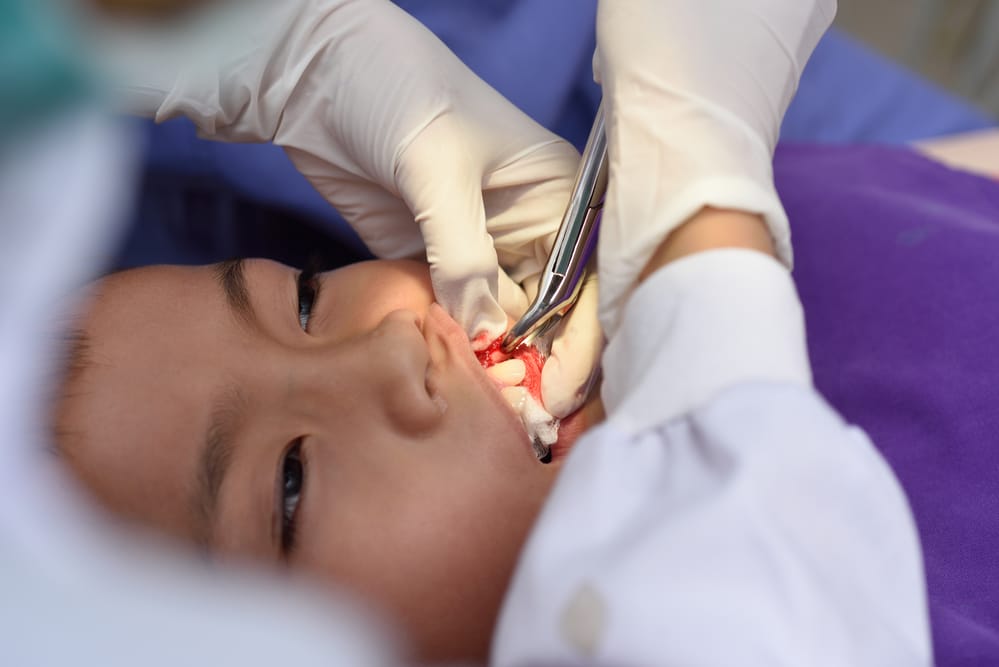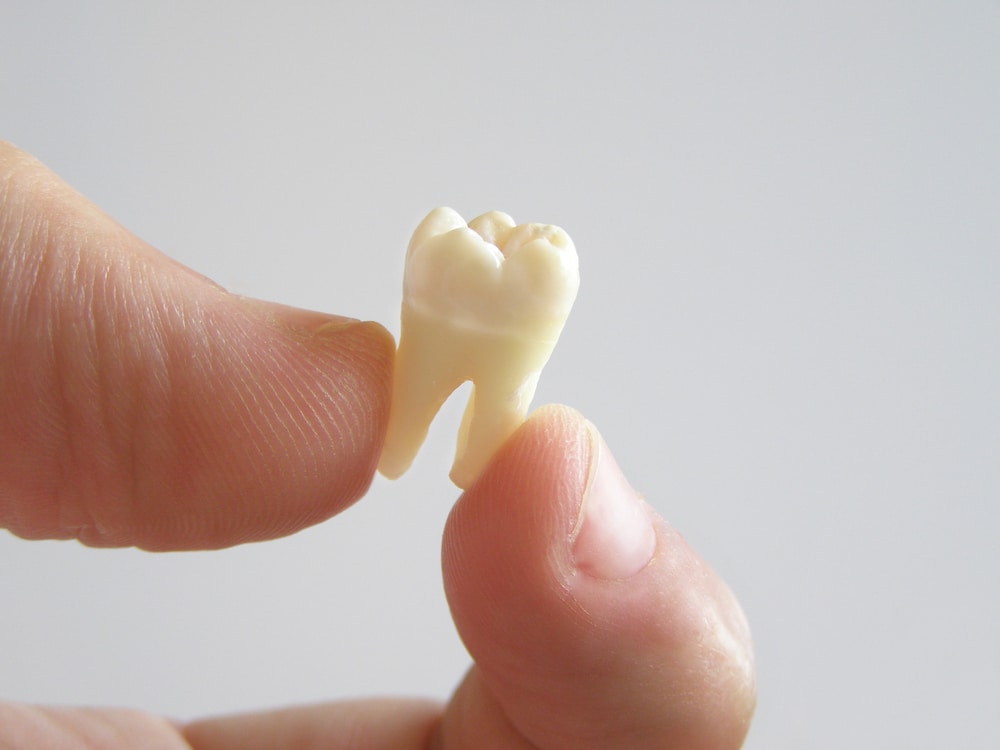
Tooth Extractions in Cary, NC
While your dentist will do everything in their power to save your tooth or teeth, there may be a situation in which your tooth or teeth are beyond repair. If this is the case, a tooth extraction will be necessary. Just as the name implies, a tooth extraction involves a dentist fully removing a
tooth that is no longer healthy.
Contact Wake Dental Care Today
The Reasons for Tooth Extraction
There are a few reasons for a tooth extraction—some of which you can control, while others you cannot. One of the most common reasons that a tooth extraction may be necessary is severe gum disease. If gum disease is allowed to progress for too long, it may inevitably lead to gum, tooth and even jawbone damage that causes a tooth to become loose. If this is the case, a tooth may need to be removed.
Another situation in which a tooth may need to be removed is when tooth decay becomes too severe to save the tooth. A tooth is removed as a last case scenario, when the tooth is beyond fixing.
The final reason for a tooth extraction is one that is beyond your control—accidental damage to the tooth. There may be a situation in which you fall, sustain a sports injury or any other form of blunt force trauma occurs that knocks a tooth loose or damages it to the point in which it cannot
be repaired. When this is the case, tooth extraction will be your only option.
Call (919) 363-3133 to Schedule an Appointment Today
Options Before Tooth Extraction
Because your dentist would rather keep your natural tooth in place, they may take several steps to save a tooth. It is extremely important to understand that—in order for your dentist to be able to take these steps—you need to maintain regular appointments every six months. If you
continue to see your dentist regularly, it is likely that your teeth will only need to undergo minor repair. If you skip trips to the dentist, oral health issues can continue to get worse—leading to a tooth extraction. It’s also important to visit your dentist if you are experiencing any pain,
pressure or swelling of the gums. These are signs of possible gum disease, decay or infection. A trip to the dentist could save you from needing more invasive dental procedures, or even tooth extraction.
The first line of defense for your oral health is regular cleanings and checkups. During these checkups, tartar and debris will be removed, and your teeth and gums will be checked for infection, damage and decay. If your dentist notices that you have gingivitis or periodontitis, they will likely perform a deep cleaning (or scaling and root planing). They may also notice a cavity, which they will promptly fill. If decay continues to get worse, a root canal may be necessary.
If a tooth is damaged, there may be a few different options for repair. Two options that your dentist may consider are veneers and dental crowns. They will do everything in their power to save your tooth.
If your tooth or gums have become infected, decayed or otherwise damaged to a point that is beyond repair, a tooth extraction will be required.
Dentists You Can Trust
We take the time to explain treatment and use the latest in dental technology to ensure a conservative approach to your dental care. We have specialized eyepieces and special decay-detecting dye to be sure we can see the smallest amount of decay and remove only the diseased portions of the tooth. Our iTero scanner allows us to scan your teeth and create restorations with world-class accuracy.

Dr. Jim Bohn
Dr. Bohn is a native of Pennsylvania. He earned a Bachelor’s of Science in Biology at Penn State University and a Doctorate of Medical Dentistry from Temple University School of Dentistry.

Dr. Jerry Allen
Dr. Jerry Allen was born and raised in Eastern North Carolina. He received his Doctorate of Dental Surgery (D.D.S) with Honors from the University of North Carolina at Chapel Hill.
Tooth Extraction Process
Once a dentist has decided that a tooth extraction is necessary, they may perform a simple tooth extraction. This involves numbing of the area, including the nerves, jaw and tissue around the tooth or teeth that will be extracted. From there, a dentist will use a special tool to remove the tooth.
For some teeth—such as molars or wisdom teeth—surgery may be required. This often involves the use of sedation or general anesthesia. Wisdom teeth removal is an extremely common procedure, and will often be required no matter how well you take care of your teeth and gums.
While pressure may be experienced during the procedure, at no point should a patient experience pain.
Risks of Not Replacing Teeth
Replacing an extracted tooth is extremely important to a patient’s overall oral health. If the tooth is not replaced, a variety of different issues may occur, such as:
- Teeth Crowding
- Teeth Migration
- Loss of Bone in the Jawbone
- Gum Disease
- Infections
In order to replace the tooth, different options may be available to the patient. The most common two include:
Dental Implants
Dental implants are tooth replacements that involve a titanium rod being installed into the jawbone to hold a false tooth in place. This is an extremely sturdy and natural looking tooth replacement option. It is only available for patients that have a strong enough jawbone to hold
the rod in place, though.
Dental Bridges
A dental bridge is an excellent option for patients that are unable to have a dental implant placed. Dental bridges generally consist of two abutments placed on healthy teeth, with a false tooth or teeth (pontic) that bridges the gap. This gives the appearance of the tooth or teeth still
being there, while also allowing for a stronger bite. A dental bridge will also help a patient to avoid bone loss in the jawbone.
Tooth Extraction Aftercare
It is important to take proper care of your gums and your mouth overall after a tooth extraction. Here are some things to consider:
- Blood clots will form, and it’s important to not remove these clots.
- Bleeding is normal. Gauze may be used to stop the bleeding.
- Avoid sucking through a straw, intense rinsing, smoking and hot liquids for the first 48-72 hours after the procedure.
- Do not brush the area of the extraction or rinse for the first 24 hours.
Speak with your dentist about which tooth replacement option is right for you.
It’s also extremely important to take care of your overall oral health to avoid tooth extractions in the future. This includes brushing your teeth, flossing and rinsing twice a day. It also includes regular trips to the dentist.
If a tooth is damaged or is otherwise compromised, visit your dentist to see what your options are. The last possible option will be a tooth extraction.

